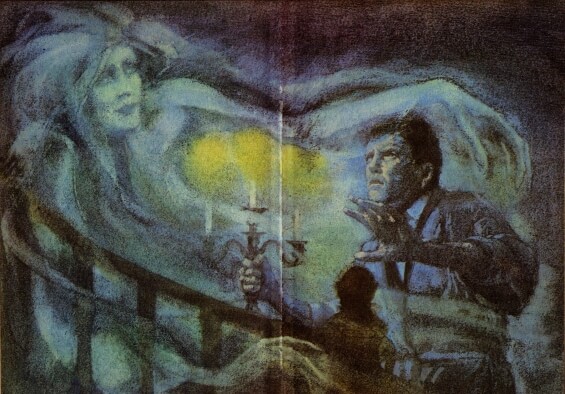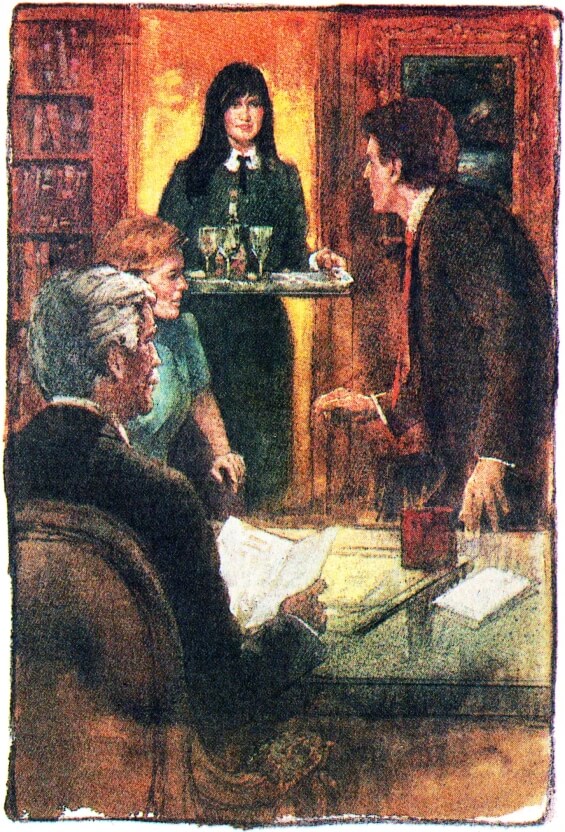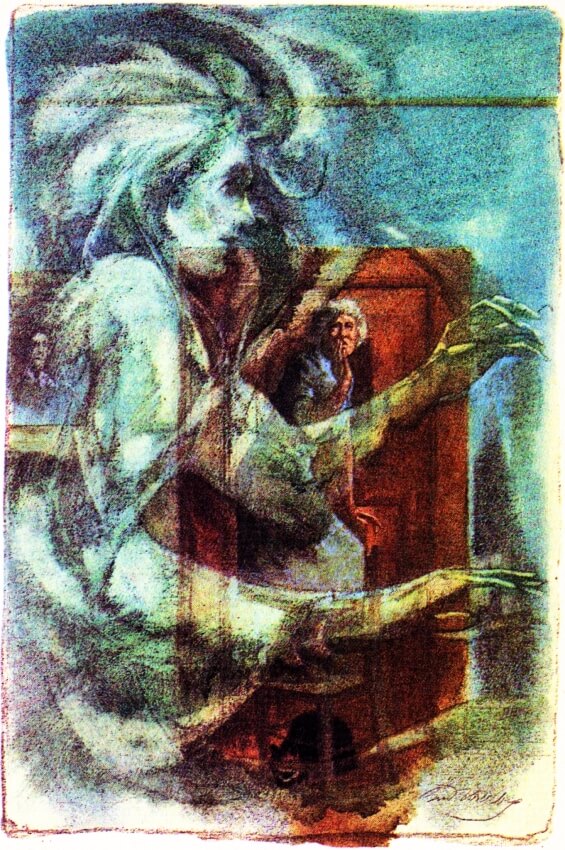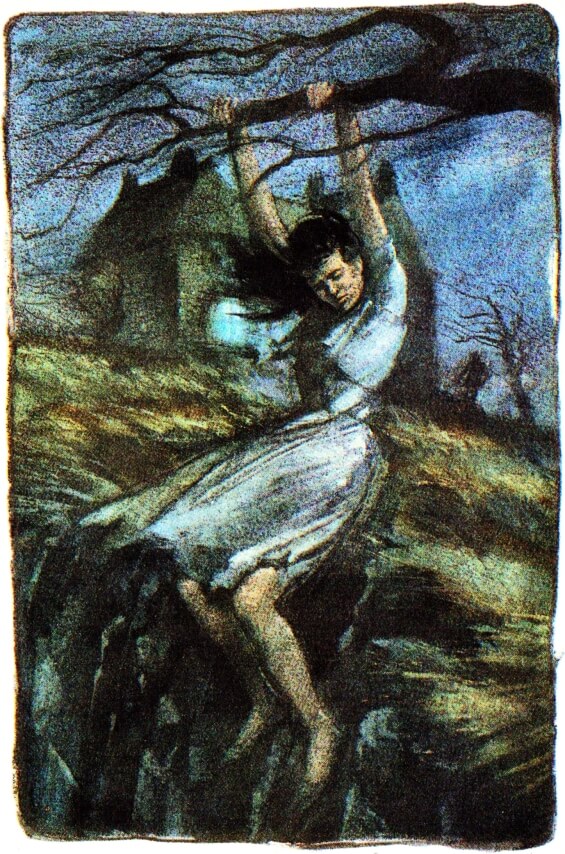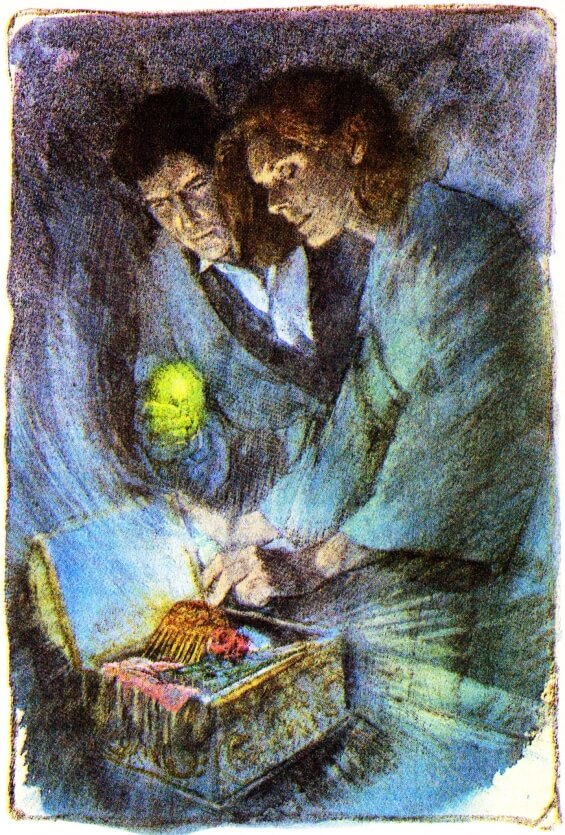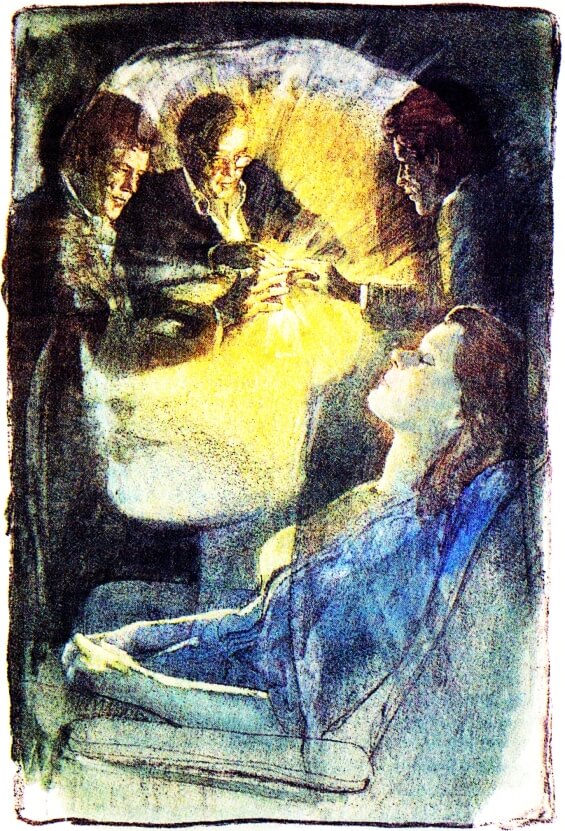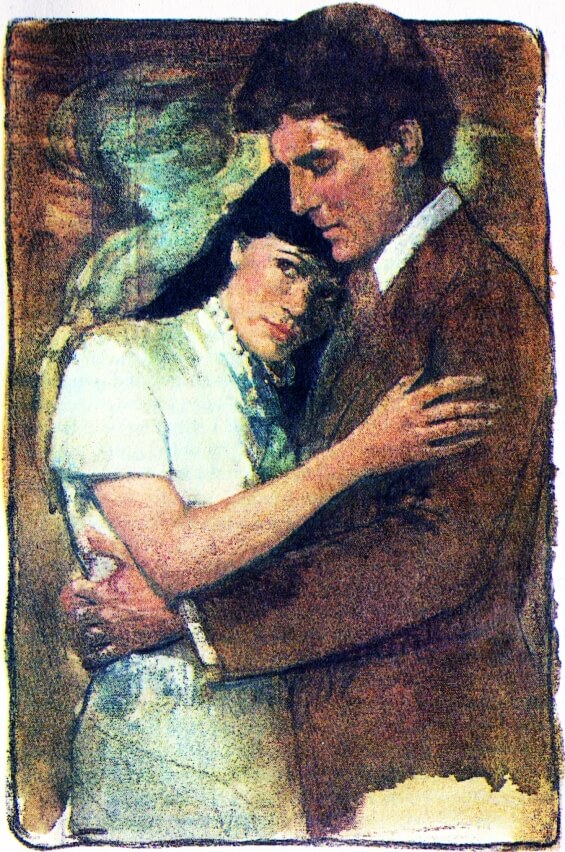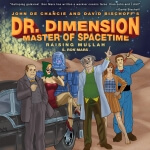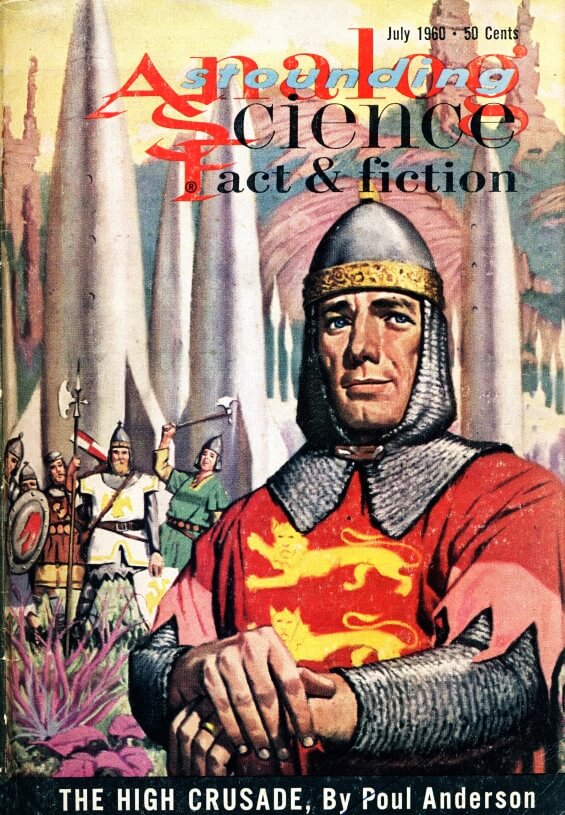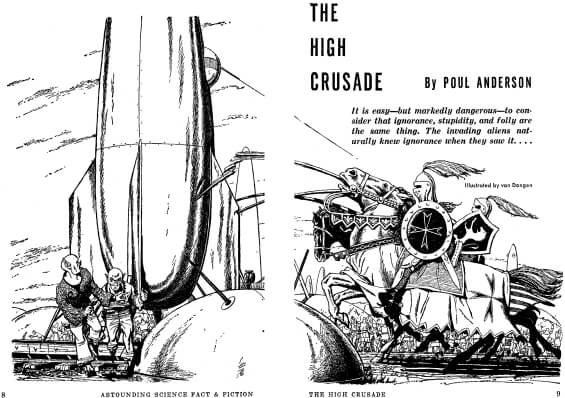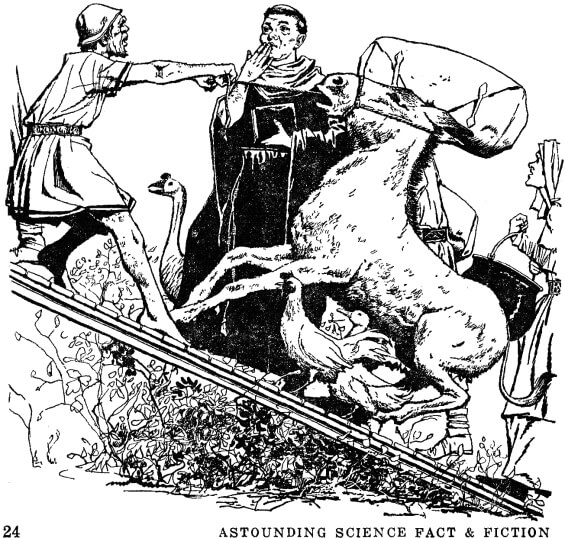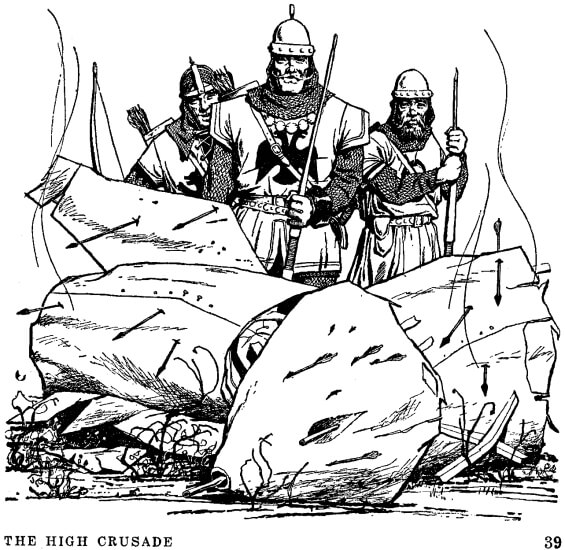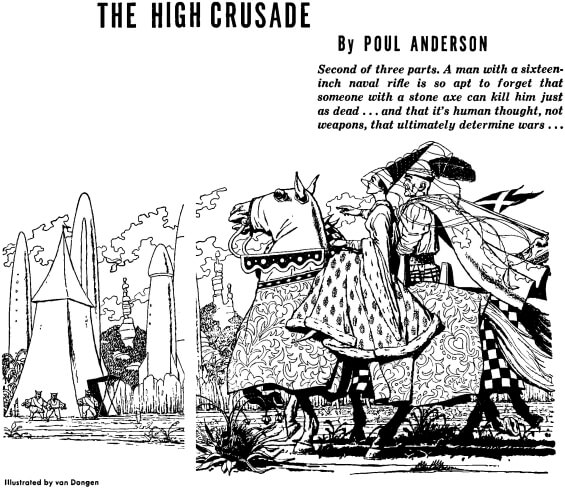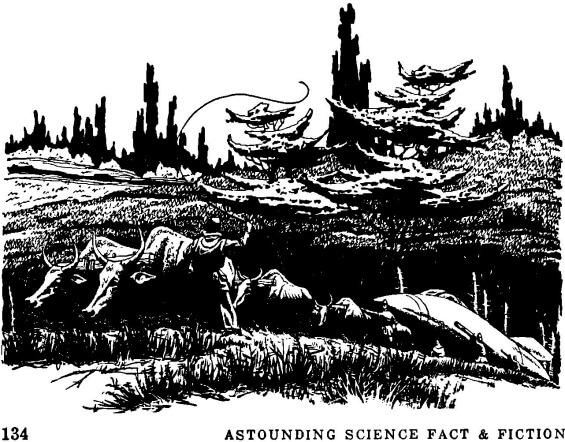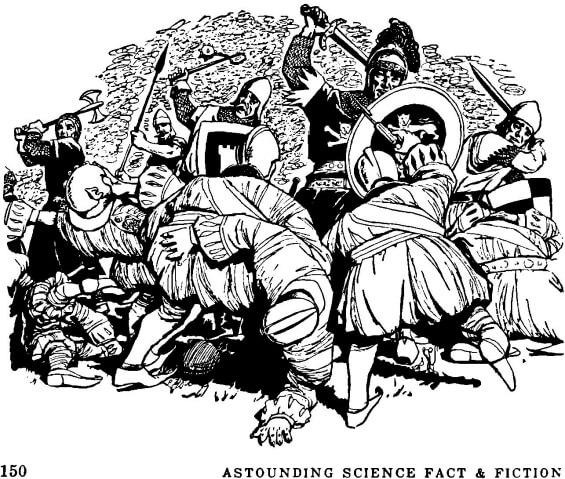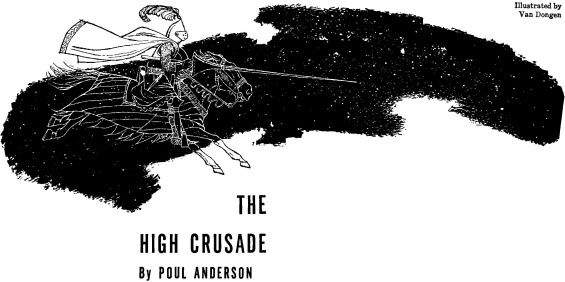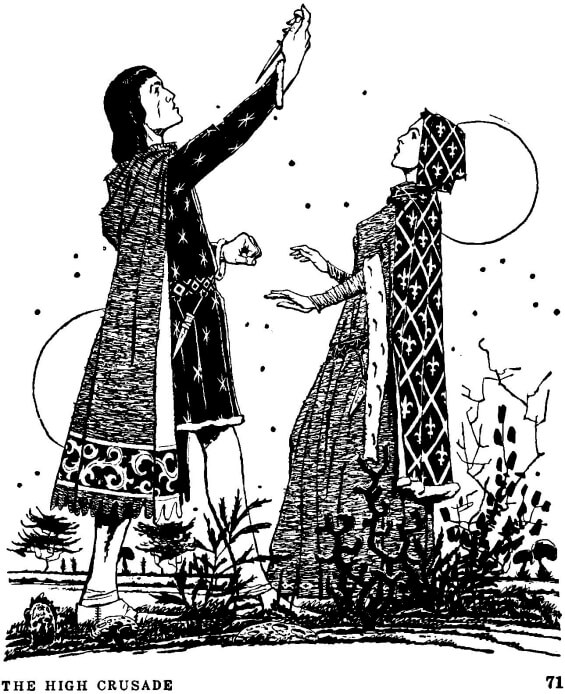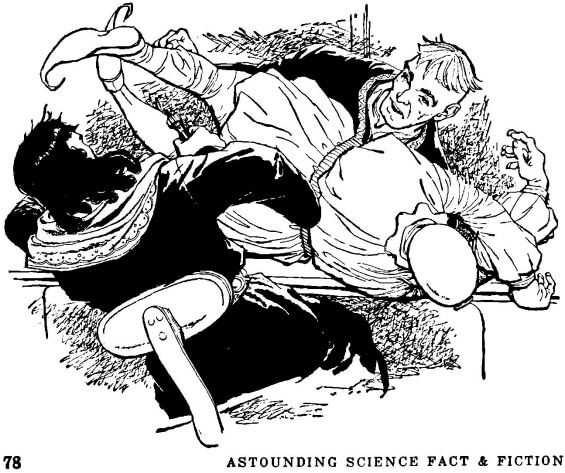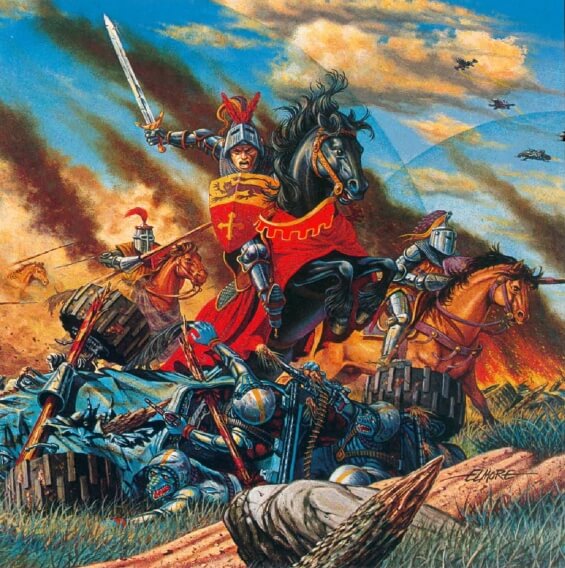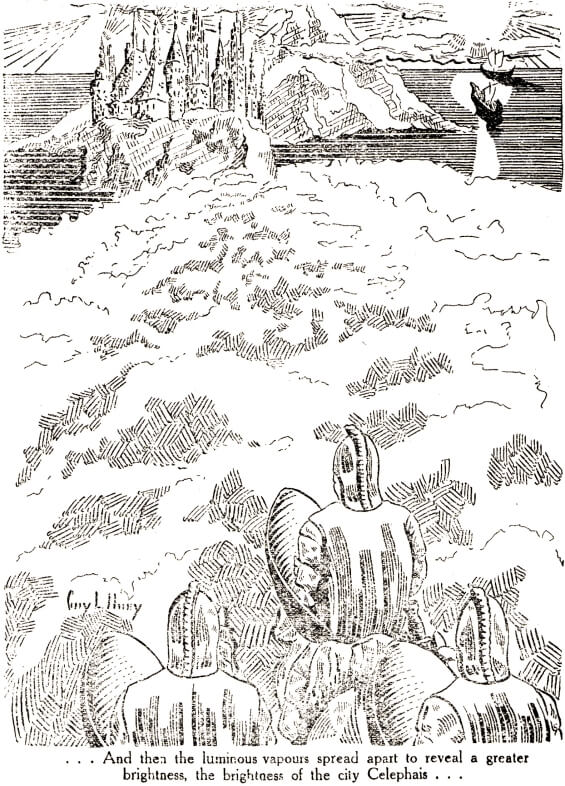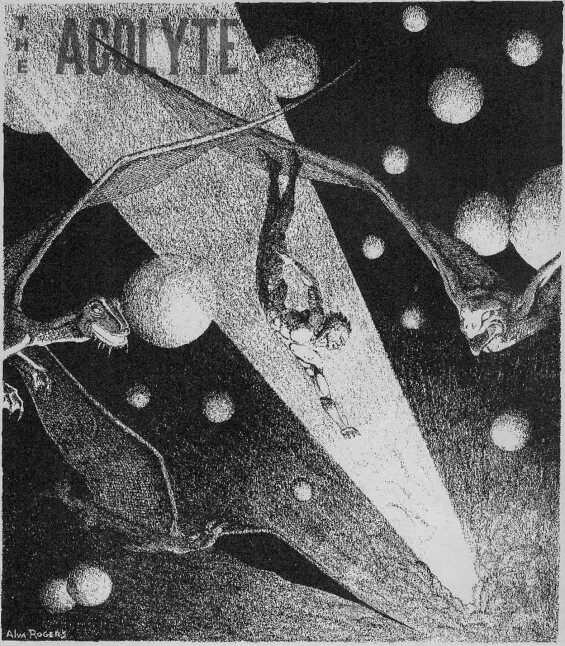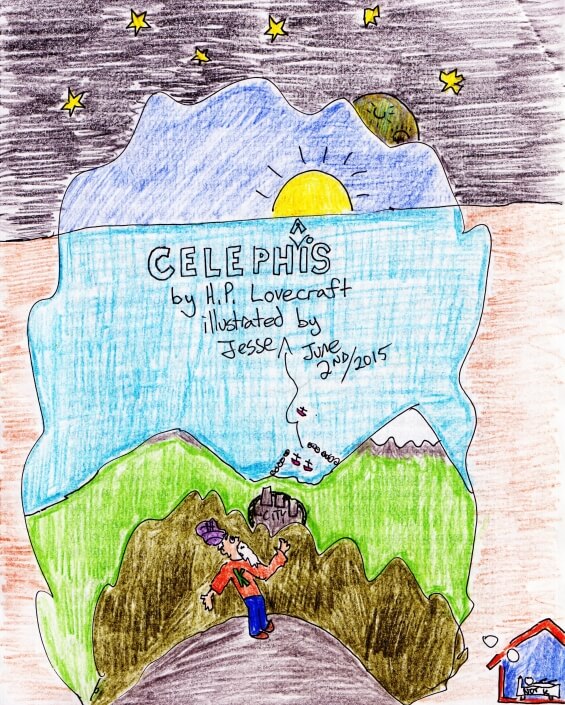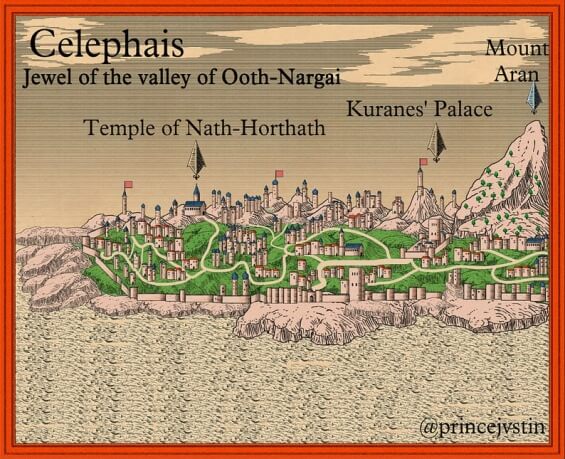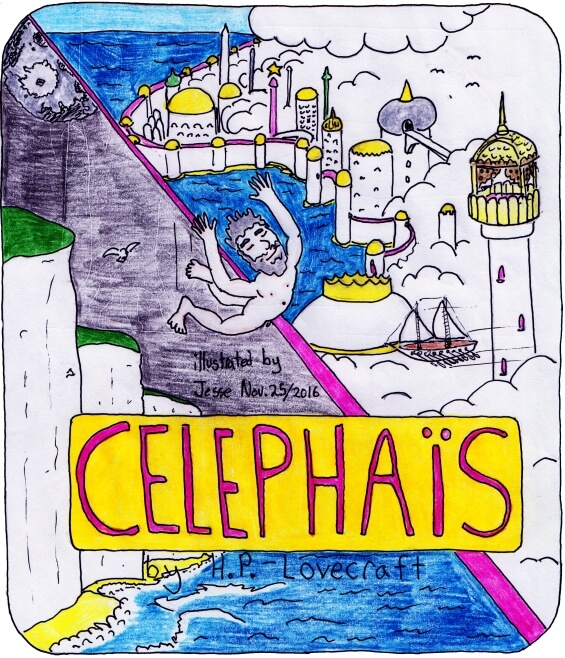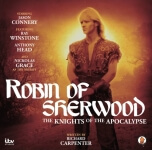
 The SFFaudio Podcast #448 – Jesse, Scott, and Paul Weimer talk about The Broken Sword by Poul Anderson
The SFFaudio Podcast #448 – Jesse, Scott, and Paul Weimer talk about The Broken Sword by Poul Anderson
Talked about on today’s show:
1954, a reconstruction of a Norse Saga with Dungeons & Dragons elements, Scott loved it, Jesse found it terrible, and Paul has read it thrice, what would have happened…, Eric Bright Eyes by H. Rider Haggard, idiots and assholes and magic, low magic, striving toward wisdom, the nuclear weapons of magic, Odin, sacrificial Paul, the rules, in the realm of mythology, Beowulf, The Lord Of The Rings, Michael Moorcock’s Elric Of Melnibone, archetypes and gods, greater and deeper, mythic vs. inspired by myth, the language was amazing, Jesse’s not saying much, directly inspired by Beowulf, The Völsunga Saga, an insight into 1000 year old society, The Odyssey, the characters tended to not be very wise, semi-historical, Ragnar Lodbrook, simile nice, toning down the massive metaphors, more about power than it is about ideas, the whole magic sword thing, magic items, H.P. Lovecraft, huge and menacing and powerful and on the edge of our ability to perceive, Skafloc, drawing runes, there’s a demon in here, cursed staves, Dreams In The Witch House, his counterpart (his changeling), screwed at birth, cursed in a Greek or Norse way, more action, not an idea book, all about the ideas, The Forever War, the ideas are not front in center, you can’t touch iron, that’s the rule!, The Magic Goes Away by Larry Niven, werewolves, becoming an outlaw, becoming savage, why is he a werewolf, Gilgamesh and Enkidu, not unlike the world was viewed, the revised edition, Bronson Pinchot’s narration, the 1971 revision (made it worse), Gollanz’s reversion, ‘I welded the Broken Sword back together’, a ‘Book For The Blind’ narration, luke warm, The High Crusade, Three Hearts And Three Lions, a WWII officer dropped into the land of fairy, the plot of the Wonder Woman movie, for copyright reasons?, fiddling, the language in this book, poetry, evocative descriptions, half converted Christians, a ghost tells them, that’s the rules, her brother her lover, that’s the tragedy, echoes, the ending was rushed, Valgard, killed by the device, E.F. Bleiler, noir, doomed from the beginning, the characters doom themselves vs. their doomed because of their destiny, why is this happening?, he calls to the raven, hey there’s a battle down the road, dude!? why did you do that?, James M. Cain, for no good reason, stirring the same area of Scott’s brain, pale recreation of Tolkien, thinking about the meta-aspect, that GRAVITAS, WWII, truth, the eternal verities, the truth of story, poetic truth, philosophers, a truth and a resonance, Dunkirk, its hard to criticize anything that is tongue-in-cheek, the bad geography of Middle Earth (Tor.com), philology, Frank Herbert, geology and ecology, monsters doing monstrous things to each other, what makes them powerful, Marissa, imagine you’re copy-editing someone’s work, fixing a falsity, the Goodreads reviews, the reviews of Beowulf, what’s the Bible’s Goodreads reviews, Gilgamesh The King by Robert Silverberg, the epic vs. the novel, ringing false, is this a high fantasy book?, Fafhrd and the Grey Mouser, science vs. magic, lets shoot the fireballs at each other, Robert E. Howard, the magic sword mentality, Excalibur and King Arthur, his human thews (though very jaguar-like), the strength of 10-hill giants, a really problematic definition, epic vs. sword and sorcery, about scale and stakes, who is casting the fireballs, “an Atlantean Sword”, the magic is in his manliness, about willpower, born to be screwed, the characters don’t seem to know themselves, they are almost pre-conscious, The Odyssey, I’ve made mistakes – I’m going to make more – and here I go, sticking with the tradition he is writing in, that northern tradition, the Neil Gaiman movie script adaptation of Beowulf, The Saga of Eric Brighteyes, set in Iceland, Henry Treece’s Viking Trilogy, on the PDF Page, Viking Dawn, The Road To Miklagard, Viking Sunset, Beothuk, throw down some quotes, a sequel hook, Ragnarok, the unfinished comic book adaptation from the 1960s, good stuff, a book full of sadness, “whence came you hither, fawn?”, the sacred grove, the dryad screams, The Grove Of Ashtaroth by John Buchan, arbitrary rules, the White Christ, real gods vs. fake gods, who and how much power a particular name has, see American Gods by Neil Gaiman, The Elf-Trap by Francis Stevens, Carcassonne, Kentucky, why are some characters not allowed to touch iron?, that’s the rules, the afterword, a science fiction-y take, when he isn’t being playful, Three Hearts And Three Lions, marrying science fiction with fantasy, how they can intertwine and make sense of each other, when the Devil shows up, Dante (Alighieri), “the White Christ, time and love”, I knew him of old in my incarnation of Loki, things as other things, fairies from China and India, a very old idea, that’s some deep stuff right there, elf girlfriends vs. human girlfriends, mocking eyes, “oh, you’re one of thooose guys”, “like calls to like”, cold mystery, adopted by elves, mythic, Dragon Magazine, some of the cartoons, straight out of Elric (and this), intelligent swords, willful swords, when you’re sword has a higher intelligence that you do, a tragedy, where’s my place in this world, where’s my place in a Norse saga?, sword dances, a novel for Dungeons & Dragons players, “Brutal, romantic and tragic. no cute hobbits.”
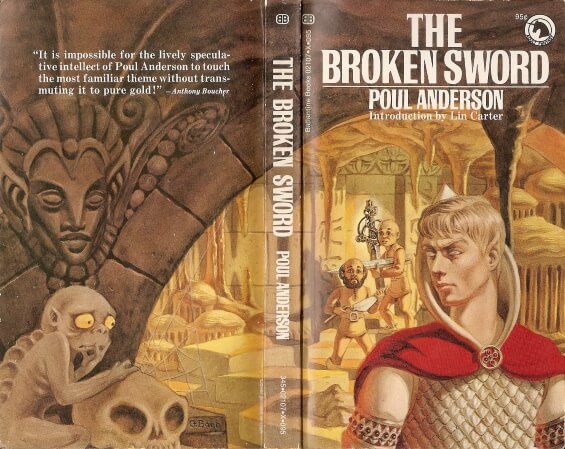
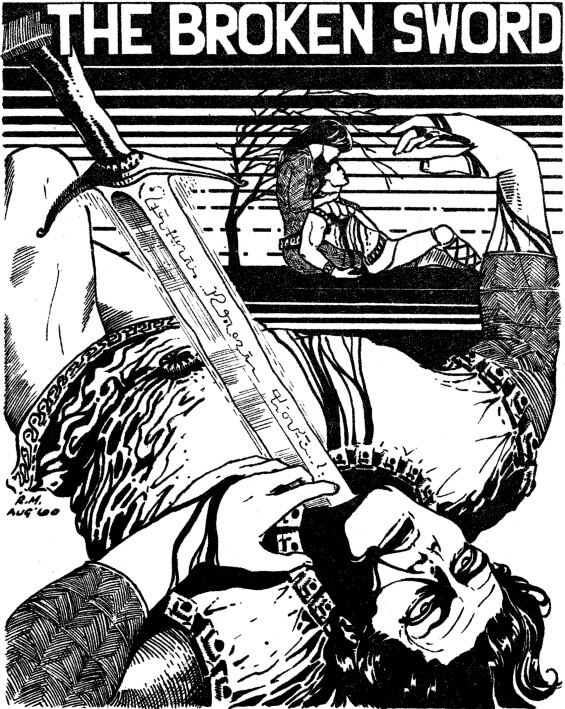
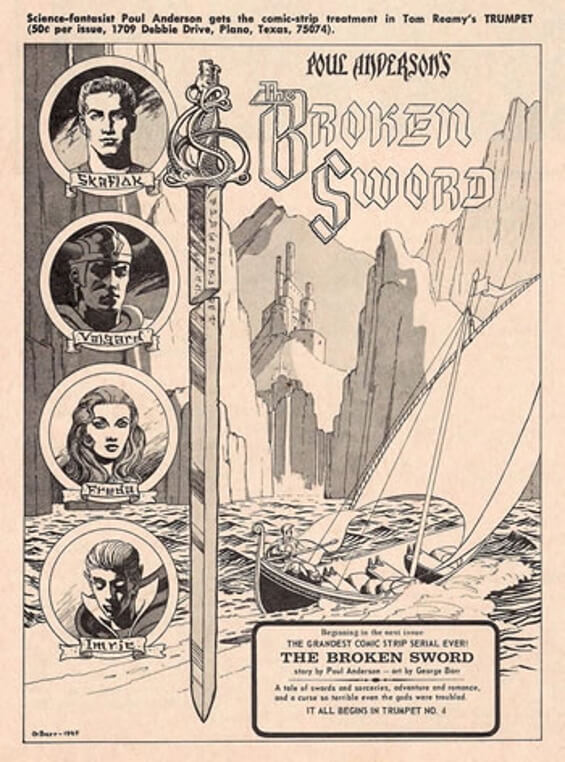
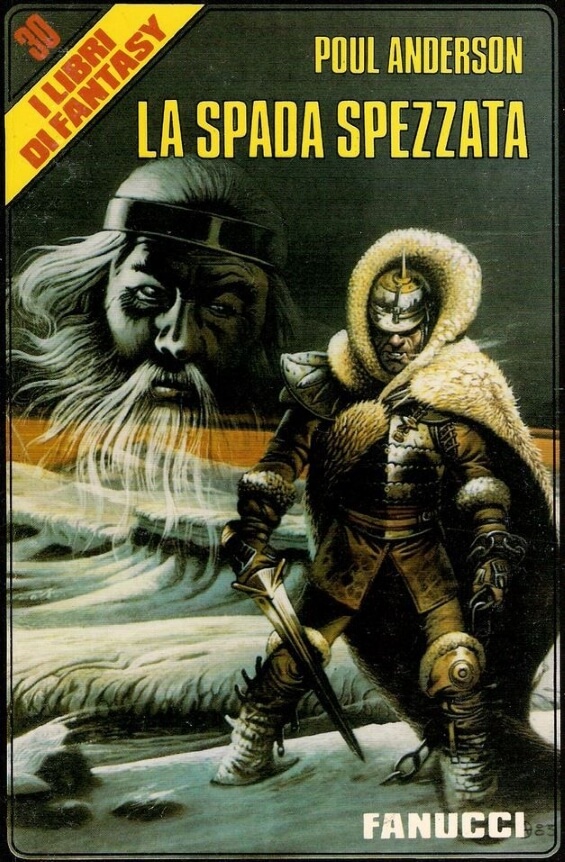
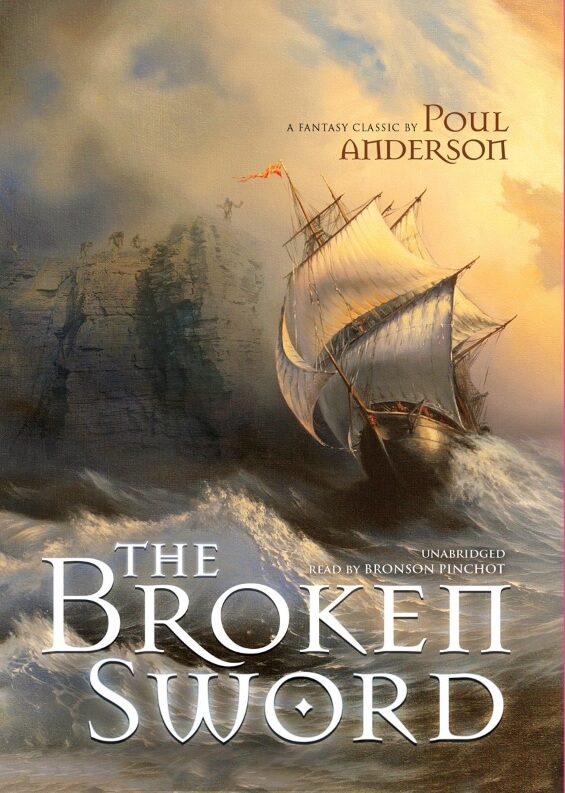
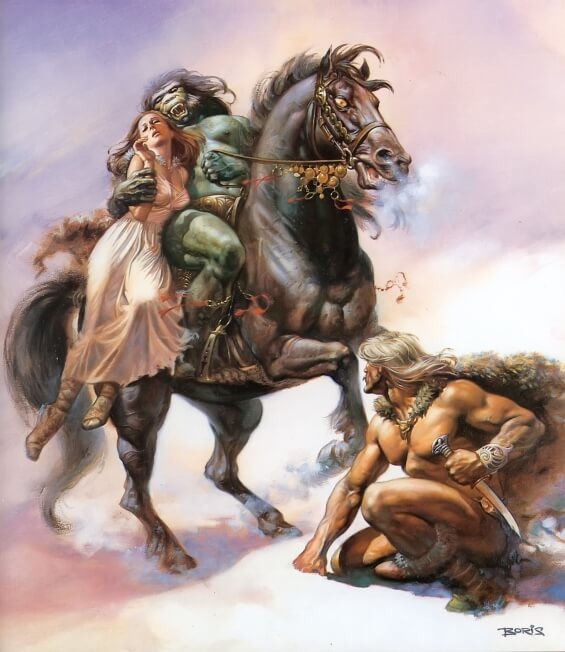
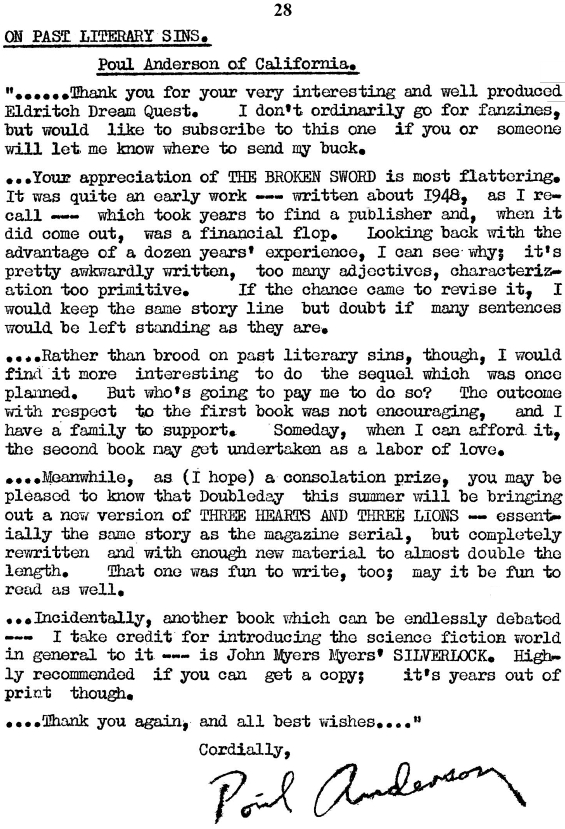
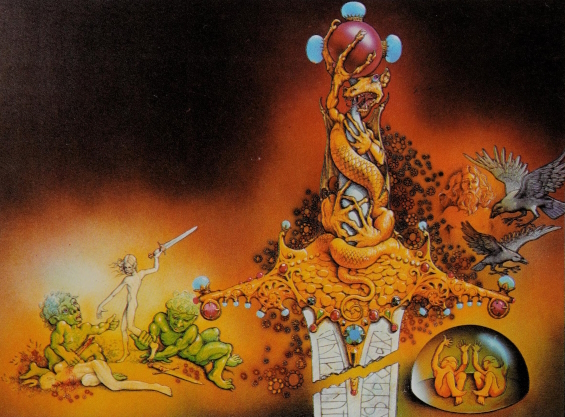
Posted by Jesse Willis
 Reading, Short And Deep #089
Reading, Short And Deep #089